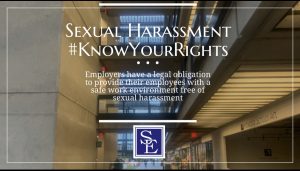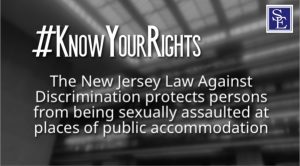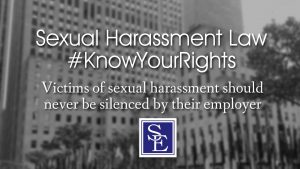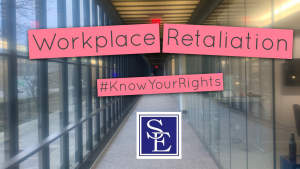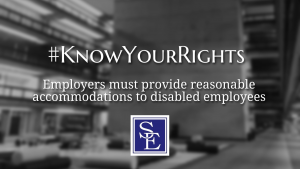New Jersey’s Law Against Discrimination provides some of the strongest protections against unlawful workplace discrimination against individual members of protected classes such as race, gender and sexual orientation. Unfortunately, even with strict anti-discrimination laws and a state-wide push towards inclusivity, numerous instances of homophobic workplace discrimination and harassment continue to rise. Recently, two New Jersey State Troopers have filed suit in the Monmouth County Superior Court, alleging years of workplace discrimination within the NJ State Police Department, based on their sexual orientation.
Lieutenants John Hayes and Jamie Lascik joined the State Police in 2001, and have worked closely with New Jersey and the New Jersey State Police (“NJSP”) to create an inclusive and diverse workplace. Hayes, who is an openly gay man, and Lascik, who is a gay African American woman, alleged repeated instances of discrimination based on their sexual orientation. Their suit alleges five violations of the New Jersey Law Against Discrimination and provides detailed situations where supervisors and other employees subjected them to ongoing harassment for their sexual identity. As summarized in the lawsuit, the “ongoing harassment and disparate treatment constitute a continuing violation,” of the New Jersey Law Against Discrimination, and the situation consisted of a pattern of retaliatory hostility, recurring intimidation, and differential treatment by supervisors over the course of many years, up to and including 2021.
The New Jersey Law Against Discrimination is one of the most comprehensive anti-discrimination laws in the country. It prohibits employment discrimination and bias-based harassment on the basis of sex, sexual orientation, race, and multiple other factors. The New Jersey Law Against Discrimination also prohibits both the creation and allowance of a hostile work environment that occurs when an employee shows that their severe and pervasive harassment would not have occurred but for the employee’s protected class membership status, and that a reasonable person of the same protected class would believe that the conditions of employment have been altered to where work environment is hostile or abusive. A hostile work environment based on sexual orientation occurs when an employee is subjected to harassing and unwelcome conduct that occurs because of the employee’s sexual orientation.
 New Jersey Employment Lawyers Blog
New Jersey Employment Lawyers Blog


